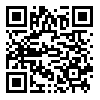1. Ahadzadeh, A., Sayadshirkesh, S., & Jamshidi Avanaki, M. (2021). Identification of Effective Factors on Public Policy Implementation in the Ministry of Energy. Public Policy, 7(1), 79-96. (In Persian)
2. Akbari, M., Sohankara, A., & Heidari, H. (2021). Roadmap for Establishing the Ministry of Energy in Iran. Journal of Policy Research in Science, Technology and Innovation, 31(2), 87-104. (In Persian)
3. Ashtarian, K., Keshavarzdoost, S., Asadi Kesheh, A., & Panahi, M. (2017). Policy Implementation; Challenges of Public Policy Implementation in Iran. Tehran: Policy Maker Publications, 162-174. (In Persian)
4. Bowen, G. A. (2009). Document analysis as a qualitative research method. Qualitative Research Journal, 9(2), 27-40. [
DOI:10.3316/QRJ0902027]
5. Elo, S., & Kyngäs, H. (2008). The qualitative content analysis process. Journal of Advanced Nursing, 62(1), 107-115. [
DOI:10.1111/j.1365-2648.2007.04569.x] [
PMID]
6. Emamian, S., & Karimi, S. (2021). A Review of Key Energy Policymaking Challenges in Iran. Policymaking and Governance in Iran. Strategic Studies Center of the Presidency. (In Persian)
7. Fartash, K., Khayatian Yazdi, M., & Ghorbani, A. (2020). Pathology of the Role of Actors in the Governance Structure of Solar Energy in Iran. Public Policy, 6(2), 155-177. (In Persian)
8. Hajimirzayi, M., Behrouzi-Far, M., Bahadori, S., & Malekhosseini, A. (2024). Evaluation of Approved Policies in the Energy Sector and Presentation of Proposed Policies to Improve Energy Governance in Iran. Quarterly Journal of Energy Economics Studies, (80), 269-305. (In Persian)
9. Hill, M., & Hupe, P. (2013). Implementing Public Policy. London: Sage. [
DOI:10.4135/9781446286500]
10. Hill, M., & Hupe, P. (2023). Implementing Public Policy. London: Sage.
11. Hosseini, S., & Norouzi, M. (2016). The Necessity of Natural Resource Governance with Emphasis on Oil and Gas in Iran: Theoretical Explanation and Experience Review. Oil and Gas Exploration and Production, (133), 9-16. (In Persian)
12. Howlett, M. (2019). Designing public policies. In Routledge eBooks. [
DOI:10.4324/9781315232003]
16. Jamshidi S. H., Amini Sabbegh Z, Sadeh E., & Sheykholeslam Kandeloosi N. (2022). Analysis of the Relationships among Factors Affecting Public Policy Implementation Based on Interpretative Structural Modeling. JMDP. 34(4), 27-61. (In Persian) [
DOI:10.52547/jmdp.34.4.27]
17. Kiser, L. L., & Ostrom, E. (1982). The Three Worlds of Action: A Metatheoretical Synthesis of Institutional Approaches. In E. Ostrom (Ed.). Strategies of Political Inquiry, pp. 179-222. Sage. [
http://pascal-francis.inist.fr/vibad/index.php?action=getRecordDetail&idt=12299086]
19. Lynn Jr LE, Heinrich CJ, Hill CJ. (2001). Improving governance: A new logic for empirical research. Georgetown University Press. [
https://www.amazon.com/Improving-Governance-Empirical-Research-Government/dp/0878408525#]
20. Matinn, M., & Saberi, A. (2021). Review of the Performance of the Twelfth Government in the Gas and Electricity Sector within the Framework of the Sixth Development Plan. Research Center of the Islamic Consultative Assembly. (In Persian)
21. Mayring, P. (2014). Qualitative content analysis: Theoretical foundation, basic procedures and software solution. Klagenfurt. [
DOI:10.1007/978-94-017-9181-6_13] [
https://nbn-resolving.org/urn:nbn:de:0168-ssoar-395173]
22. Mohammadi, N., & Danaeifard, H. (2019). A Model of Participatory Governance for Renewable Energy Development in Iran: An Institutional Approach. Journal of Energy Policy and Planning Research, 5(3), 67-95. (In Persian)
23. Mousavi, M., & Saberi, A. (2021). Review of the Performance of the Twelfth Government in the Electricity Sector within the Framework of the Sixth Development Plan. Research Center of the Islamic Consultative Assembly. (In Persian)
24. Mousavi darche, S., Ghanei Rad, M., Kormian, H., Zonoori Zadeh, H., & Bagherimoghadam, N. (2018). Presenting a Descriptive-Transition Framework for Technological Domains Based on a Multi-Level Analysis Approach: (Case Study: Transition of Wind and Solar Energies in Iran). Management Improvement, 12(2), 141-171. (In Persian)
25. Pasandideh, A., & Heydari, G. (2024). Paradigm Analysis of Governance and Policymaking for Renewable Energies in Iran. Renewable and New Energies, 11(1), 125-138. (In Persian)
26. Rasekhi, S., & Saedi, R. (2018). Analysis of the Effect of Natural Resource Rent and Governance Quality on Energy Intensity in Fuel Exporting Countries. Iranian Energy Economics, 7(28), 83-104. (In Persian)
27. Riahi, F., Zahedi, S., Farjadi, G. A., & Najafi, S. (2019). The Impact of Institutional Governance on Environmental Sustainability of Energy through Economic and Social Sustainabilit. JMDP. 32(2), 91-133. (In Persian) [
DOI:10.29252/jmdp.32.2.91]
28. Ritchie, H., Rosado, P., & Roser, M. (2023). CO₂ and Greenhouse Gas Emissions. (Our World in Data) Retrieved from [
https://ourworldindata.org/co2-and-greenhouse-gas-emissions]
29. Roser, M., Arriagada, P., Hasell, J., & Rit, H. (2023). Economic Growth. (Our World in Data) Retrieved from [
https://ourworldindata.org/economic-growth.]
30. Saberi, A., & Zafarian, H. (2023). Natural Gas Imbalance in the Country (2): Framework of Proposed Solutions. Research Center of the Islamic Consultative Assembly. (In Persian)
31. Saberi, A. (2024). Pathology of Energy and Environment Optimization Market and Presentation of Solutions. Research Center of the Islamic Consultative Assembly. (In Persian)
32. Salehi Shahrabi, N., Pourezzaat, A., Mahmoudi, V., & Ghasemi, M. (2019). Reprocessing of Electricity Generation Policies with a Green Management Approach (Comparative Study of Denmark, Germany, and Iran). Public Management Researches. (In Persian)
33. Sandu, S., Yang, M., Shi, X., & Chi, Y. (2020). A governance perspective on electricity industry development: The case of Papua New Guinea. Energy Policy. [
DOI:10.1016/j.enpol.2020.111464]
34. Shahidzadeh, H., & Soleimani Murcheh Khurti, E. (2021). Investigating the Effect of Liquid Fuel Consumption in Power Plants on the Intensification of Tehran's Air Pollution in the Cold Season. Islamic Consultative Assembly Research Center. (In Persian)
35. Shams, H., & Maknoon, R. (2014). Energy Community Management in Iran, Review of Strategies and Outcomes. International Conference on Innovative Approaches in Energy Conservation. SID. (In Persian) [
https://sid.ir/paper/831097/fa]
36. Tavanir (2024). Detailed Statistics of Iran's Electricity Industry, Special for Strategic Management in the Year 1402. Tehran: Deputy of Research and Human Resources, Tavanir Information Technology Office. (In Persian)
37. UNDP. (2021). Human Development Report. online: United Nations Development Programme. [
https://hdr.undp.org/system/files/documents/global-report-document/hdr2021-22overviewen.pdf]
39. WorldBank. (2013). Improving Energy Efficieny in Craova, Romania. Online: World Bank. [
http://documents.worldbank.org/curated/en/932151468294616623]
41. WorldBank. (2015). Republic of Turkey: Institutional Review of Energy Efficiency. Online: World Bank. [
https://hdl.handle.net/10986/21776]
42. WorldBank. (2022). World Bank Report. Online: World Bank. [
https://www.worldbank.org/en/publication/wdr2022#downloads]

 ، غلامرضا معمارزاده طهران*2
، غلامرضا معمارزاده طهران*2 
 ، مرتضی موسی خانی1
، مرتضی موسی خانی1 
 ، زهرا مقیمی3
، زهرا مقیمی3 
 ، یداله سبوحی4
، یداله سبوحی4 






